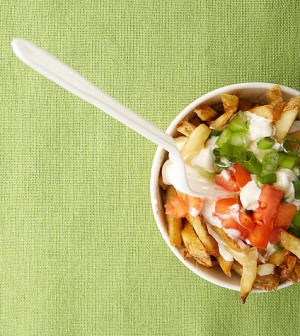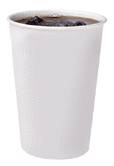- 7 Best Breads for Maintaining Stable Blood Sugar
- Gelatin vs. Collagen: Which is Best for Skin, Nails, and Joints?
- The Long-Term Effects of Daily Turmeric Supplements on Liver Health
- Could Your Grocery Store Meat Be Causing Recurring UTIs?
- Are You Making This Expensive Thermostat Error This Winter?
- Recognizing the Signs of Hypothyroidism
- 10 Strategies to Overcome Insomnia
- Could Artificial Sweeteners Be Aging the Brain Faster?
- Techniques for Soothing Your Nervous System
- Does the Water in Your House Smell Funny? Here’s Why
Carbonation May Help Artificially Sweetened Soda ‘Trick’ the Brain


FRIDAY, Sept. 20Did they get your diet soda order right at the drive-thru? It may not be so easy to tell.
According to a new study, carbonation in soft drinks alters the brain’s perception of sweetness and makes it difficult to distinguish between sugar and artificial sweeteners.
So the combination of carbonation and sugar may lead to increased sugar and food consumption since the brain perceives less sugar intake, the researchers said.
This may explain why eating disorders, metabolic diseases and obesity are common among diet soda drinkers, according to the study, which was published in the September issue of the journal Gastroenterology.
The researchers used functional MRI to monitor changes in brain activity when people drank carbonated beverages that contained sugar or artificial sweeteners.
“This study proves that the right combination of carbonation and artificial sweeteners can leave the sweet taste of diet drinks indistinguishable from normal drinks,” study author Rosario Cuomo, an associate professor of gastroenterology at Federico II University in Naples, Italy, said in a journal news release.
The confusion could also have an upside, Cuomo said.
“Tricking the brain about the type of sweet could be advantageous to weight loss — it facilitates the consumption of low-calorie drinks because their taste is perceived as pleasant as the sugary, calorie-laden drink,” she said.
Further research is needed to clarify the puzzling link between reduced calorie intake with diet drinks and higher rates of obesity and metabolic diseases.
More information
The U.S. Department of Agriculture has more about calories.
Source: HealthDay
Copyright © 2026 HealthDay. All rights reserved.










